Imperialism
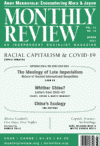
Despite all of the inevitable contradictions, China stands out in the present planetary emergency in having advanced an ambitious vision of ecological civilization with the strong support of the Chinese population. Paraphrasing C. Wright Mills on Cuba, we do not worry about China’s struggle to create an ecological civilization. We worry with it. | more…
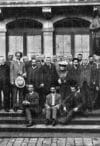
The Return of the Geopolitics of the Second International
In 1990, when renowned Indian Marxian economist Prabhat Patnaik asked “Whatever Happened to Imperialism?,” once vibrant and influential schools of theories on imperialism were at a postwar historic low. When he left the West to return to India in 1974, imperialism was at the center of all Marxist discussions. But when he came back to the West merely fifteen years later, imperialism already seemed out of fashion. The retreat from the question of imperialism has marked a return of what we can call Second International politics. | more…

The Development of Productive Forces in Contemporary Capitalism
Capitalist modernity not only contains profound contradictions, but is also undergoing a significant transformation. Far from acting as a driving force for the development of social productive forces, it has become a parasitic entity with an essentially rentier and speculative function. Underlying this is an institutional framework that favors the private appropriation and the concentration of the products of general intellect. | more…
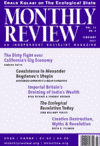
We remember our good friend and comrade, Leo Panitch, one of the great socialist intellectuals of all time, who died on December 19, 2020, age 75. | more…

Colonialism before the First World War
The Western European powers appropriated economic surplus from their colonies, materially and substantially aiding their own industrial transition from the eighteenth century onward, as well as the diffusion of capitalism to the regions of new European settlement. In the case of India, the concept of drain is based on the fact that a substantial part of its earnings was never permitted to accrue to the country; it was instead appropriated by the ruling power: Britain. | more…

The Korean War, which broke out on June 25, 1950, can be considered the epicenter of bombing as an instrument of war. For one, it was the first—and, so far, the last—time since 1945 that the United States seriously considered using atomic weapons during the course of an imperial war. It was the first war that the United States did not win. It ended in a stalemate—an armistice—that continues until today. Kinetic fighting was suspended, but the war continues (though only by one side) by what is conveniently but simplistically called sanctions. | more…
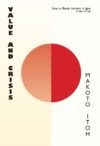
Marxist economic thought has had a long and distinguished history in Japan, dating back to the First World War. When interest in Marxist theory was virtually nonexistent in the United States, rival schools of thought in Japan emerged, and brilliant debates took place on Marx’s Capital and on capitalism as it was developing in Japan. Forty years ago, Makoto Itoh’s Value and Crisis began to chronicle these Japanese contributions to Marxist theory, discussing in particular views on Marx’s theories of value and crisis, and problems of Marx’s theory of market value. Now, in a second edition of his book, Itoh deepens his study of Marx’s theories of value and crisis, as an essential reference point from which to analyze the multiple crises that have arisen during the past four decades of neoliberalism. The promise of Marx’s theories has not waned. If anything—given the failure of Soviet-style socialism and the catastrophe of neoliberalism—it grows daily. | more…
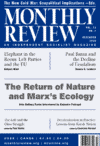
The United States is now in a New Cold War with Russia and China, with the focus increasingly on the latter and involving a direct challenge to U.S. hegemony over the world economy. | more…
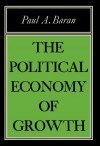
Recently published and estimated historical data illustrate that economic surplus declined during the thirteenth and fourteenth centuries in England, helping explain the “crisis of feudalism” that started in the thirteenth century. It was not until several centuries later, when capitalism became the dominant economic system, that the economic surplus began to rise on a consistent basis, due to the reinvestment of a portion of the surplus into productive activities, a greater ratio of capital income to rental income, and a greater ratio of investment to economic surplus. | more…
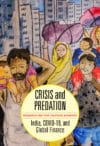
With the advent of COVID-19, India’s rulers imposed the world’s most stringent lockdown on an already depressed economy, dealing a body blow to the majority of India’s billion-plus population. Yet the Indian government’s spending to cushion the lockdown’s economic impact ranked among the world’s lowest in GDP terms, resulting in unprecedented unemployment and hardship. Crisis and Predation shows how this tight-fistedness stems from the fact that global financial interests oppose any sizable expansion of public spending by India, and that Indian rulers readily adhere to their guidance. Meanwhile, under the banner of reviving private investment, India’s rulers have planned giant privatizations, and drastically revised laws concerning industrial labor, the peasantry, and the environment—in favor of large capital. | more…

The COVID-19 pandemic shocked the world. It shouldn’t have. Since this century’s turn, epidemiologists have warned of new infectious diseases. Indeed, H1N1, H7N9, SARS, MERS, Ebola Makona, Zika, and a variety of lesser viruses have emerged almost annually. But what of the epidemiologists themselves? Some bravely descended into the caves where bat species hosted coronaviruses, including the strains that evolved into the COVID-19 virus. Yet, despite their own warnings, many of the researchers appear unable to understand the true nature of the disease—as if they are dead to what they’ve seen. Dead Epidemiologists is an eclectic collection of commentaries, articles, and interviews revealing the hidden-in-plain-sight truth behind the pandemic: Global capital drove the deforestation and development that exposed us to new pathogens. | more…
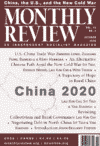
This special issue of Monthly Review, “China 2020,” is the product of a long period of cooperation with critical Chinese Marxist scholars. This has resulted in an extensive series of articles on contemporary Chinese social and economic relations since 2012, to which most of the authors in the present issue have previously contributed. It takes on a special significance due to the growing conflict between the United States and China, making critical Marxist analysis in this area all the more important. | more…











